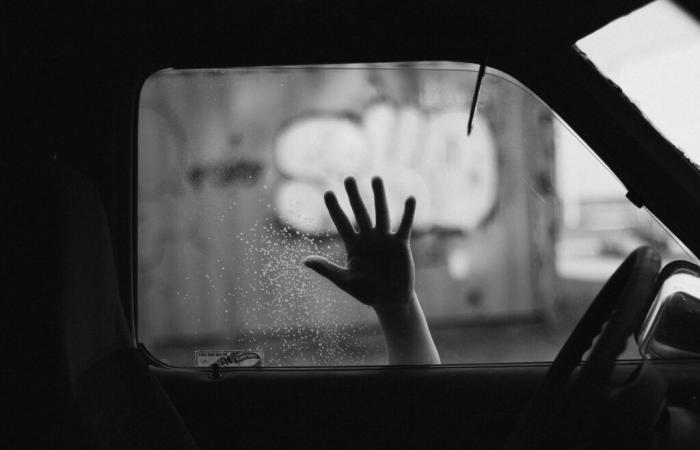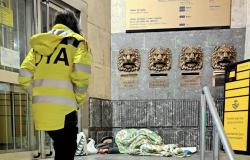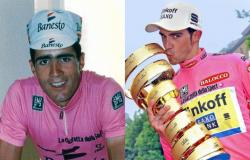A few weeks ago I read a strange book. It was called Of the chewing of the dead in their tombs, of Michael Ranft. It was edited by the Felguera. I love that editorial. A few years ago, while investigating HMC, I met her with another book: The black army, of Serving rock. What a wonder! The fact is that the book of chewing is a kind of essay originally published a few centuries ago and I think no one had translated it into Spanish so far. Apparently, it was published to demystify some supercherías and beliefs related to the dead who revived and returned to kill their family and neighbors. The author wanted to end the fear and superstition of all those credulous people. As? With scientific evidence and philosophical arguments. In this way, they would stop thinking that vampires and/or zombies were real. Although, well thought out, perhaps there was no such extensive catalog about monsters as there is today thanks to cinema and literature. The fantastic argument has evolved throughout the last centuries. I imagine that zombies, vampires and what they were ending up converging in the same thing: dead that resurrect to eat the living.
“I didn’t even know that I had died. I turned away a few steps and tried to talk with him. After all, I knew him about the people even if he hadn’t talked much to him“
Apparently the play did not go well and these texts ended up further strengthening those fears and beliefs with respect to the unlocked and their fondness for fresh flesh. This essay also served as inspiration for authors such as Bram Stoker o Lovecraft. And although I understand Dracula, it is not clear to me what the waiting dead have to do with the original, the ancient gods and the cosmic terror. I think that Howard Phillips It transcended the earthly to another dimensional plane, which, for its time, was an act of courage. And why not say it, he laid a very good precedent for current terror. But, returning to The chewing of the dead in their tombsI have to say that the dissertations have surprised me. I have seemed more current and advanced than one would expect from a book of 1728. Very interesting the way in which it addresses the physical processes and the changes that occur in the body once someone dies. I overwhelm the perspective of a past that, reading the book, I didn’t seem so distant. And well, the amount of bibliographic references are amazing. Many of the works that are mentioned will have disappeared or, as little, it will be almost impossible to find them. That, in a way, reflects our ephemeral character. Both of us, as people/authors, as well as our legacy. What will remain of us when we have dead? In Spain thousands of books are published a year. Many of them pass without sorrow or glory. Of some writers, awarded in the past, today there is no echo of his name. We are fleeting, hyperbreve, perishable.
And all this, almost as is, I told Roberto a while. He approached me down the street while walking to the super. At first I did not understand a word; It blushed as if he had his mouth full of cotton. And smelled of rays; I was rotten. Well, not quite. Still. He was in the process of decomposition. I didn’t even know that I had died. I turned away a few steps and tried to talk with him. After all, he knew him about the people even if he had not spoken much with him. Of the Berber Festivities and that. Finding someone like that is much less pleasant than doing it with a spectrum. Ghosts do not smell. The smell said Roberto was very unpleasant. And, as much as I tried to separate from him, I kept approaching. It was stubborn.
“When the ambulance arrived, on the faces of his occupants I saw that it was not the first time they were in that situation. They even knew Roberto“
Setting myself well in him, I don’t know how I recognized him. Because there were no left or gunshots. He had torn clothes, he lacked some teeth and his hair had picked up in tufts, some of which had been adhered to the jacket’s shoulders. That suit, in his day, must have been one of the best in his closet. That with which I went to weddings, baptisms and communions. His sunken eyes still looked wet, but there was no life in them. I called 112. I explained what was happening. And while they arrived, I told him about Ranft’s book. Perhaps to make him understand that he should not be here, that the dead gets up of his graves is a myth. “But I’m not dead,” he told me. “Of course no,” I said, a little to make time and not contradict it. The teeth that were left were blackened and, most worrying, there were remains of meat between them. The chin and chop were stained with dry blood. It could be bleeding, but it didn’t smell of wine. I am sure of that.
When the ambulance arrived, on the faces of his occupants I saw that it was not the first time they were in that situation. They even knew Roberto. Everyone wore masks, so if they asked me, I could not give a description that helped identify them. What I know is that they didn’t smell better than the dead. They did not look better, by the way. They were sparks in words. “Thank you, we are in charge,” said the doctor. When supporting his hand on Roberto’s shoulder, I realized that I had broken and folk nails, earth and, perhaps, blood. That worried me. Roberto hardly knew him, but his family deserved to know what had happened. So I lengthened my hand and stepped forward. I wanted to know where they took him and all that. The nurse got in and retained me while the doctor helped Roberto climb the back of the ambulance. “Thank you, we are in charge,” he repeated as an automaton. He supported his forearm on my chest and, in doing so, the fist of his manga fell worms and other bugs, twisting hungry. I turned away, I raised my arms and gave myself up. “Well, that’s it,” I told them. The last thing I remember is that they went up to the ambulance and, before they could say anything else, they hurried with the lights and siren. I don’t know anymore. Upon arriving home I returned to the Book of the Felguera. I looked for the loose ends, the fringes of that truth that was drained between my fingers. The image then came up – and with her disgust – of the worms twisting on the back of my hand. I closed the book as who closes Pandora’s box. And in the same way, I told myself that I would not open it again, it was not that, in the end, it would end up believing everything it says.
0/5
(0 scores. Value this article, please)






